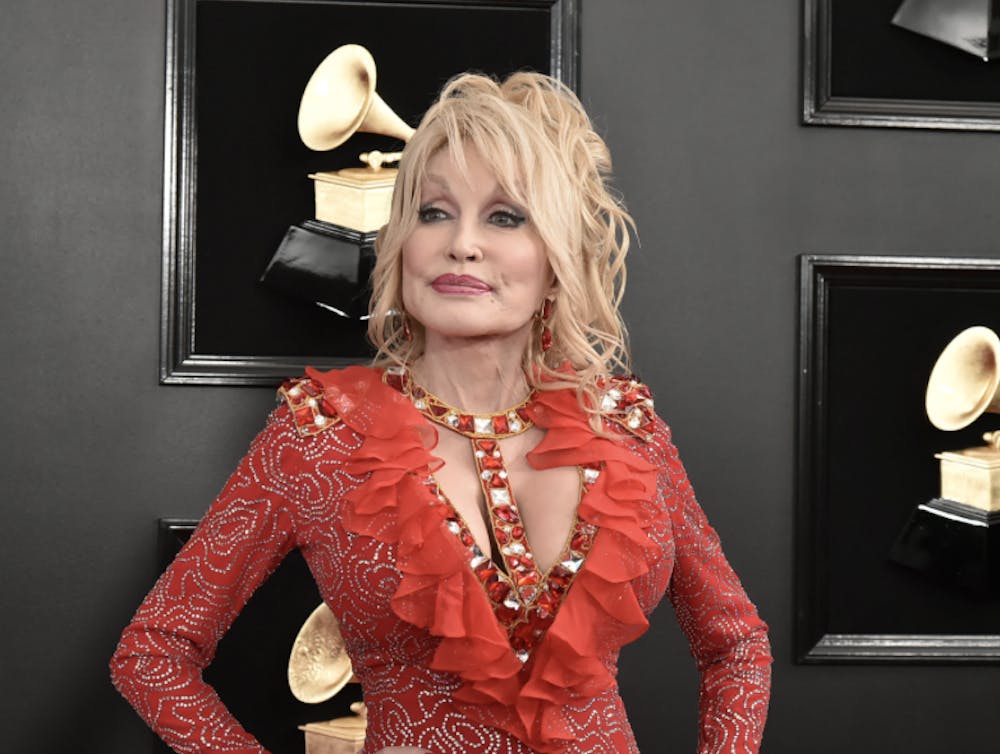What do most people think of when they hear Dolly Parton? If you are anything like me, you remember Aunt Dolly bickering with Mamaw over Elvis Presley on Disney Channel’s sitcom “Hannah Montana.” You might think of her induction into the Country Music Hall of Fame or her beloved song “Jolene,” but her philanthropic efforts are perhaps least likely to top the list. These efforts go on and on, spanning the duration of her career and deserving recognition. The country legend grew up in Sevier County, Tennessee, one of the poorest counties in the country. As she rose to fame and wealth, her past economic struggles humbled her, leading to a philanthropic journey that has persisted throughout her career.
Her famous song “9 to 5” not only exemplifies her connection to her upbringing, but her persisting understanding the struggle of earning a liveable wage in America. The song undermines the American Dream and the concept of going from “rags to riches” by describing just how difficult it can be to get by. She acknowledges, rightfully, the grit and determination needed to hustle through these jobs and then receiving little compensation. To put it in Dolly’s words, “Barely getting by, it’s all taking and no giving.” Sympathizing with hard working Americans, it is no wonder Parton turned to a career of philanthropy.
The Dollywood Foundation launched in 1988 in Parton’s hometown to fund local improvements. The Buddy Program, an initial launch from the foundation, offered $500 to high school graduates, decreasing the dropout rate from 35% to 6%. Parton’s philanthropic journey was off to a successful start. One of the most impactful projects, the Imagination Library, began in 1995. The project promised to send a free book to each child until the age of 5 every month, and after beginning with the artist’s hometown, it was adopted by North Carolina, the District of Columbia and Ohio in the near future. The Imagination Library is now responsible for gifting books to 1.45 million children. More recently, Parton launched My People in 2016 to support victims of Tennessee wildfires. Since then, the fund has transformed to continue aiding firefighters while also focusing on rebuilding efforts.
In 2017, Parton began cultivating her relationship with the Vanderbilt University Medical Center, donating $1 million in honor of her niece who received leukemia treatment at the Monroe Carell Jr. Children’s Hospital. In response to the coronavirus pandemic, she made another hefty donation of $1 million to Vanderbilt to fund vaccine research. This money went towards the development of the Moderna vaccine, which is key in the United States’ vaccine distribution. Parton’s connection to Vanderbilt continues her goal of helping locally, keeping a close connection to her hometown and refusing to let fame remove her from her roots.
Earlier this month, Tennessee officials made a bipartisan agreement to erect a statue of Dolly Parton in front of the State Capitol in Nashville, replacing a controversial confederate statue. Taking to Twitter, the native Tennessean respectfully asked officials to cease with the statue’s plans in light of current situations, deeming it insensitive. Her statement reads, “Given all that is going on in the world, I don’t think putting me on a pedestal is appropriate at this time.” She remains open to the honor of a statue in the future, either a few years down the road or after her passing if it is deemed appropriate. Fans praised her response and added it to the long list of reasons to adore Dolly.
From scholarships to benefit concerts, The Dollywood Foundation has been responsible for improving the lives of many. Parton puts her money where her heart and passions are: as a result of her modest upbringing, she understands the importance of helping those less fortunate. This philanthropic work adds a layer to the common view of the artist: she doesn’t just make tacky look classy; she’s a country music icon. All of this charitable work deserves honor and recognition, and the possibility of a statue further down the line during an appropriate time could be one way to show it. A statue is not enough to repay the legend herself, but it is a darn good way to start.
Get The Chronicle straight to your inbox
Signup for our weekly newsletter. Cancel at any time.

